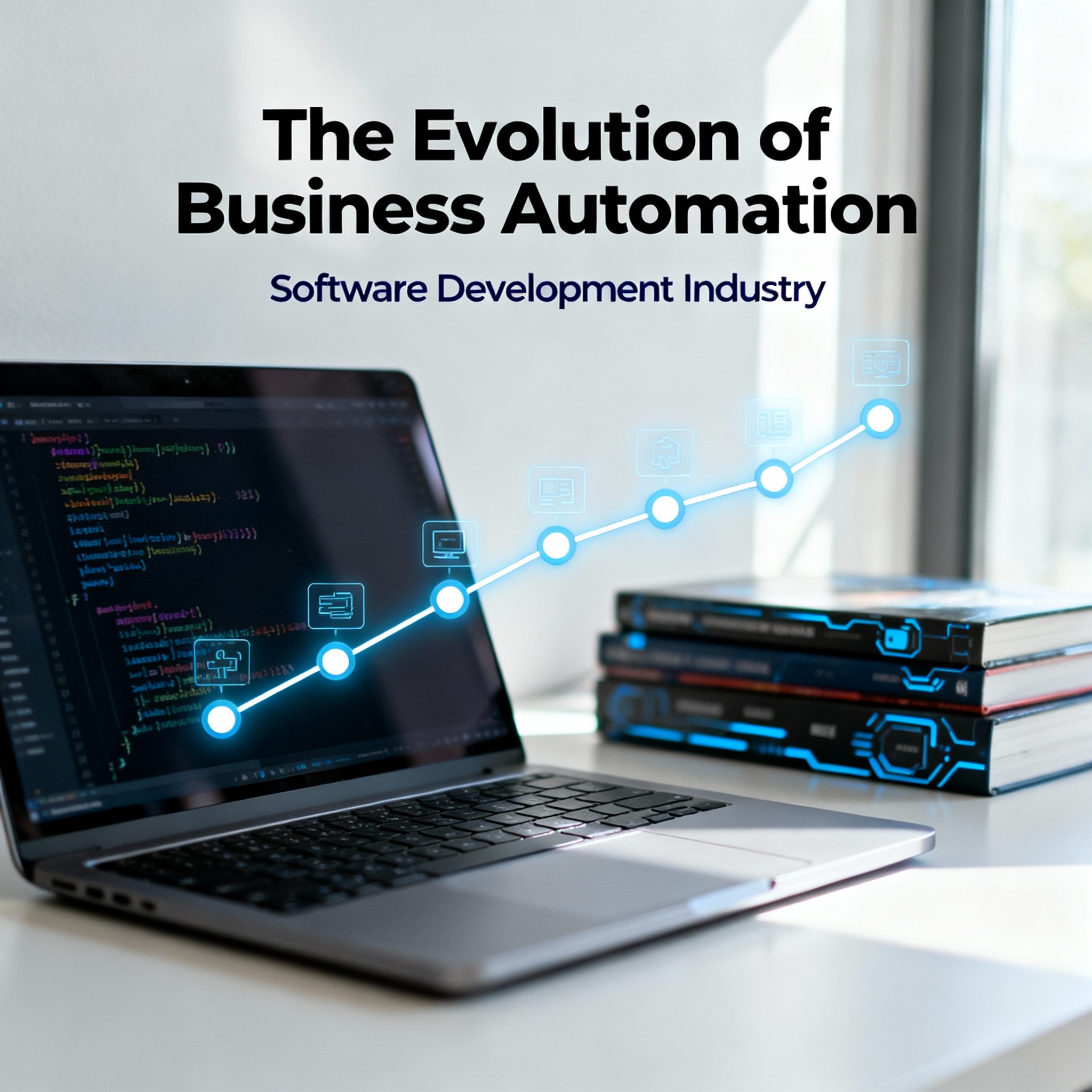
In today's rapidly evolving business landscape, artificial intelligence has emerged as a transformative force that's fundamentally changing how organizations operate. AI-driven automation is no longer a futuristic concept—it's a present-day reality that's delivering measurable results for companies across industries.
At AI Foundry, we've witnessed firsthand how intelligent automation systems can revolutionize business processes, reduce operational costs by up to 60%, and free up valuable human resources to focus on strategic initiatives that drive growth and innovation. This article explores the key ways AI automation is transforming modern business operations.
The Evolution of Business Automation
Traditional automation focused on simple, rule-based tasks—repeating the same actions based on predetermined conditions. While useful, these systems lacked adaptability and couldn't handle complex decision-making scenarios. AI-driven automation represents a quantum leap forward, incorporating machine learning algorithms that can analyze data, recognize patterns, make intelligent decisions, and continuously improve performance over time.
Modern AI automation systems leverage advanced technologies including natural language processing, computer vision, predictive analytics, and deep learning neural networks. These capabilities enable businesses to automate not just repetitive tasks, but complex workflows that previously required human expertise and judgment.
Key Areas Where AI Automation Delivers Value
Customer Service and Support
Intelligent chatbots and virtual assistants powered by natural language processing can handle thousands of customer inquiries simultaneously, providing instant responses 24/7. These systems learn from every interaction, continuously improving their ability to understand context, sentiment, and intent. The result? Dramatically reduced response times, higher customer satisfaction rates, and support teams that can focus on complex issues requiring human empathy and creativity.
Data Processing and Analysis
AI systems can process massive volumes of data at speeds impossible for human analysts, identifying patterns, anomalies, and insights that inform strategic decisions. From financial forecasting to market trend analysis, automated data intelligence enables organizations to make faster, more accurate decisions based on comprehensive information rather than limited samples or gut instinct.
Supply Chain Optimization
Machine learning algorithms can predict demand fluctuations, optimize inventory levels, identify potential supply disruptions before they occur, and automatically adjust procurement strategies. This level of intelligent automation reduces waste, prevents stockouts, and ensures efficient resource allocation across complex supply networks.
Quality Control and Monitoring
Computer vision systems can inspect products with greater accuracy and consistency than human inspectors, identifying defects at microscopic levels and at production speeds. These automated quality control systems reduce errors, minimize waste, and ensure consistent product quality that builds customer trust and brand reputation.
Implementing AI Automation: Best Practices
Successfully implementing AI-driven automation requires a strategic approach. Start by identifying high-impact processes that are repetitive, data-intensive, and currently consuming significant human resources. Prioritize automation initiatives based on potential ROI, implementation complexity, and alignment with business objectives.
It's crucial to ensure data quality and availability—AI systems are only as good as the data they're trained on. Invest in proper data collection, cleaning, and management infrastructure before deploying automation solutions. Additionally, involve your team members in the automation process. Address concerns transparently, provide training on working alongside AI systems, and emphasize how automation will eliminate tedious tasks and enable employees to focus on more meaningful, creative work.
The Future of AI-Driven Business Operations
As AI technologies continue to advance, we'll see even more sophisticated automation capabilities emerge. Hyper-personalization at scale will become standard, with AI systems tailoring products, services, and experiences to individual customer preferences in real-time. Predictive automation will shift from reactive to proactive, with systems anticipating needs and taking action before problems arise.
The integration of AI automation with other emerging technologies like Internet of Things sensors, blockchain for secure data sharing, and edge computing for real-time processing will unlock entirely new possibilities for business innovation and operational excellence.
Taking the First Step
The question is no longer whether to implement AI automation, but how quickly you can do so to remain competitive. Organizations that embrace intelligent automation today position themselves as industry leaders tomorrow. The key is starting with a clear strategy, choosing the right technology partners, and maintaining a focus on continuous improvement and learning.
At AI Foundry, we specialize in helping businesses navigate their automation journey—from initial strategy and assessment through implementation, optimization, and ongoing support. Our team of AI experts works closely with clients to identify opportunities, design custom solutions, and ensure successful deployment that delivers measurable business value.
Ready to transform your business operations with AI-driven automation? Contact us today to discuss how we can help you unlock the full potential of intelligent automation and drive sustainable competitive advantage in your industry.